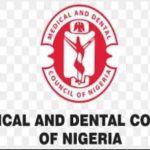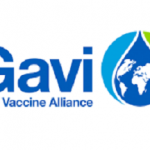Ademola, also the Medical Director, StrongTower Hospital and Advanced Fertility Centre, a Lagos-based private medical facility, spoke with the News Agency of Nigeria (NAN) on Thursday in Lagos.
He stressed the need for early antenatal and prenatal care registration among pregnant women, at least within the first trimester (three months) of the pregnancy.
The expert said that the essence of early registration was to enable early detection of any case of elevated BP or abnormal health condition during the pregnancy, so that necessary medical control or interventions could come in.
According to him, BP is never constant, it can change at any time; that is why regular checks on it becomes very necessary.
“Presently, a lot of research and findings are ongoing, to see how elevated BP can be prevented,” Ademola said.
The consultant said that the most dangerous BP elevation during pregnancy was the one caused by the pregnancy itself, also known as Pre-eclampsia.
“Pre-eclampsia is a dangerous pregnancy complication characterised by high blood pressure and signs of damage to another organ system, most often the liver and kidneys.
“Pre-eclampsia usually begins after 20 weeks of pregnancy in women, whose blood pressure had been normal.
“Left untreated, pre-eclampsia can lead to serious, even fatal, complications for both mother and baby,” he said.
Also, Dr Joseph Akinde, Chairman, Society of Gynaecology and Obstetrics of Nigeria (SGON), Lagos Chapter, advised Nigerians, particularly pregnant women, on the need to always check their Blood Pressure (BP).
Akinde said most people with high blood pressure were not usually aware that they had the condition until they went through the test.
According to him, elevated BP also known as Hypertension is a condition in which the systemic BP of an adult aged 18 and above is persistently above 140/90 in a non- diabetic and 130/80 in a diabetic person following three consecutive tests.
Akinde said the test was meant for adults from 18 years and above.
He said that it was necessary to be careful while announcing to patients that they had hypertension to avoid causing more damage to the system.
Akinde listed the symptoms of hypertension to include headache, dizziness, easy fatigue, tension of the neck.
He said, “When hypertension sets in, it invades diabetics. Signs are persistent elevated blood pressure.
“Some drugs we take cause hypertension; oral contraceptives, which some ladies take, cause it while excessive salt can also result in the condition.
“Checking is done to ensure that BP is maintained below 140/90 or 130/80MMHG.
“When it is confirmed that a patient has hypertension, he should reduce stress and stop smoking.
“It is advisable that the patient seek medical attention, modify his/her lifestyle, be on drug and reduce salt intakes.”
Akinde, who said that stress had been identified as the major cause of hypertension, added that once a person started taking drugs, he or she should not stop. (NAN)








